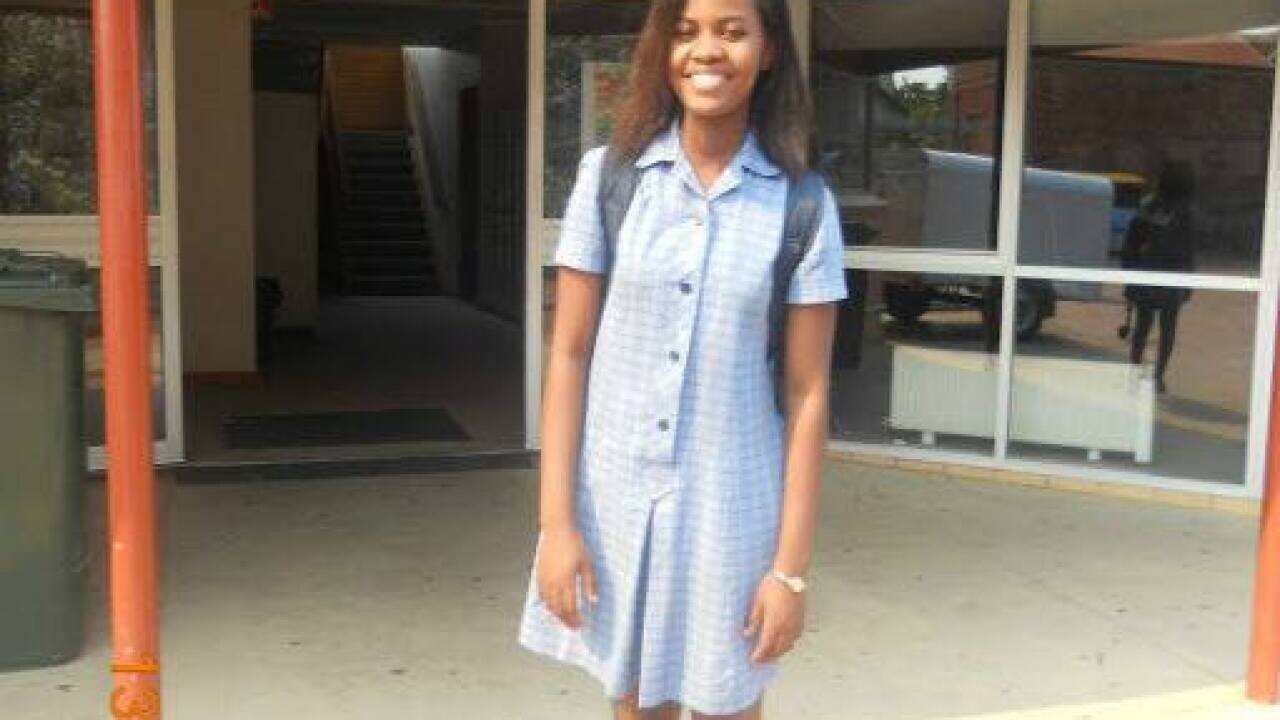In the community where Riziki Kokombe grew up, AIDS was everywhere.
"A lot of people had wounds that were big, massive…stinky," she says. "But they just didn't have enough money to go to hospital."
The 19-year-old was born in the Democratic Republic of Congo and lost both her parents to war when she was a baby.
She and her four brothers fled the country to the Kakuma Refugee Camp in Kenya, where HIV was rife and the stigma around it meant that sufferers were often ostracised and left to die.
"When somebody had HIV/AIDS everybody would run away from them; they didn’t want to touch them," Riziki says.
"They weren’t educated enough to know how AIDS is spread.
"So no one would go near that person if they had the disease and they would end up dying in a really bad way."
Riziki and two of her four brothers migrated to Australia as refugees in 2009 and set up home in Bendigo, in regional Victoria.
She has just finished her first year of nursing at Ballarat University after being awarded a scholarship by Bendigo Bank.
She now wants to go on to become a doctor, she says so she can help people who can’t afford healthcare and prevent deaths from treatable conditions.
Unimaginable odds
Inside the Kakuma Refugee Camp, Riziki says, everyone knew everyone.
"We were kind of like a family, all of us. There were heaps of people and a lot of them had the disease."
She now knows how HIV is contracted and transmitted, but back then she had the same mindset as the others.
"[I thought] once someone had HIV/AIDS you can’t approach them, you can’t touch them. There’s nothing you can do for them. Because if you touch them – even handshake – that means you’re going to get it too."
The responsibility of looking after her family had fallen on her eldest brother, who took work wherever he could to support the family.
"The school was amazing; we didn’t get beaten anymore."
At the camp, Riziki and her siblings lived with her uncle, but he was sick and couldn’t provide the financial support they desperately needed. Their home, too, was small.
"It was crowded because my uncle has a lot of children," she says.
"There was like seven or eight girls [who] had to fit on the same bed and some of us had to sleep down on a mat.
"So it was really hard but we survived, we worked through that."
When she was 12 years old, Riziki’s brother told her they were going to have an interview because they’d been sponsored to migrate to Australia.
It was a year before she and her two brothers finally moved to Australia and settled in Bendigo as refugees.
Her two other brothers went to live in the United States and she hasn’t seen them since.
Bendigo
While country Victoria might seem quite a jump, Riziki says her new life provided the family some much needed respite.
"It wasn’t as hard getting food or worrying about what you were going to eat," she says.
"The school was amazing; we didn’t get beaten anymore."
She attended Catholic College Bendigo and in 2010 joined a refugee minor program with Bendigo Community Health Services. It was through that program that she met mentor Kaye Graves, a nurse of 22 years.
Kaye says she has seen a big change in Riziki – whom she describes as “an incredible soul” – since that early meeting.
"She sees a future for herself and through her first year of nursing she realises she can do it," she says.
"And she will do it."
The population of people in Bendigo who come from the DRC is low but Kaye says the city is now home to a growing number of refugees, particularly of Karen and Afghan origin.
Bendigo Community Health Services provides settlement services to new arrivals, helping them navigate their new lives and access essential services.
“We consider that the essential pillars of optimal settlement are the things we all take for granted," Kaye says.
"Accessing health, education, jobs… establishing social connections."
"So we facilitate all that."
The two keep in touch over the phone and catch up for coffee when Riziki is back.
She believes Riziki’s application for a scholarship was probably successful because of her resilience.
"She’s determined," Kaye says. "And passionate."
Humanitarian vision
For all her new opportunities and experiences, Riziki says her early life is never far from her mind.
"Sometimes I just think about what I used to see in Africa and that motivates me," she says.
After training as a nurse she hopes to study medicine and open clinics in third-world countries struggling with a lack of resources.
"I would love to go to places where there are not enough hospitals or not enough help for people who don’t have money," she says.
"I want to help make a difference.
"Even making a difference in one person’s life would be amazing."

